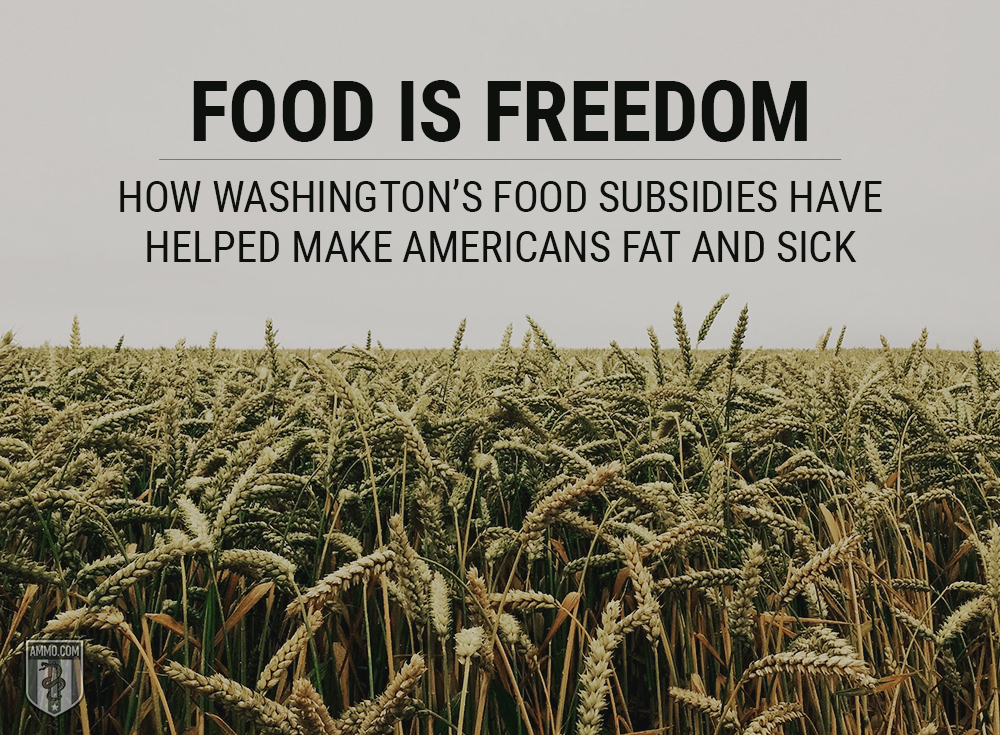Food Is Freedom: How Washington’s Food Subsidies Have Helped Make Americans Fat and Sick

Farm subsidies are perhaps the ultimate, but secret, third rail of American politics. While entitlements are discussed out in the open, farm subsidies are rarely talked about – even though they are the most expensive subsidy Washington doles out.
All told, the U.S. government spends $20 billion annually on farm subsidies, with approximately 39 percent of all farms receiving some sort of subsidy. For comparison, the oil industry gets about $4.6 billion annually and annual housing subsidies total another $15 billion. A significant portion of this $20 billion goes not to your local family farm, but to Big Aggie.
(Note that this $20 billion annual farm subsidy figure doesn’t take into account the 30+ years of ethanol subsidies to the corn industry nor export subsidies to U.S. farmers issued by the USDA.)
The government never properly explains why this is. Certainly small farmers are growing their crops at enormous risk. However, it’s not clear that agriculture is any different than other high-risk industries – especially because the United States is blessed with some of the most fertile farmland in the world, and a highly skilled labor force.
Subsidies don’t just cost taxpayers, an expense that might properly be justified by showing a return on investment. Subsidies also provide powerful disincentives against innovation, as well as cost effectiveness and diversification of land use.
There is also a strong case to be made that farm subsidies are a major driver of the obesity and cancer epidemic in the United States. Every time Washington interferes in the private sector, they are picking winners and losers. The winners chosen are companies producing food that’s high in calories and low in nutritional density – and that helps make Americans sick and fat, because it distorts what food is available at what price.
…click on the above link to read the rest of the article…